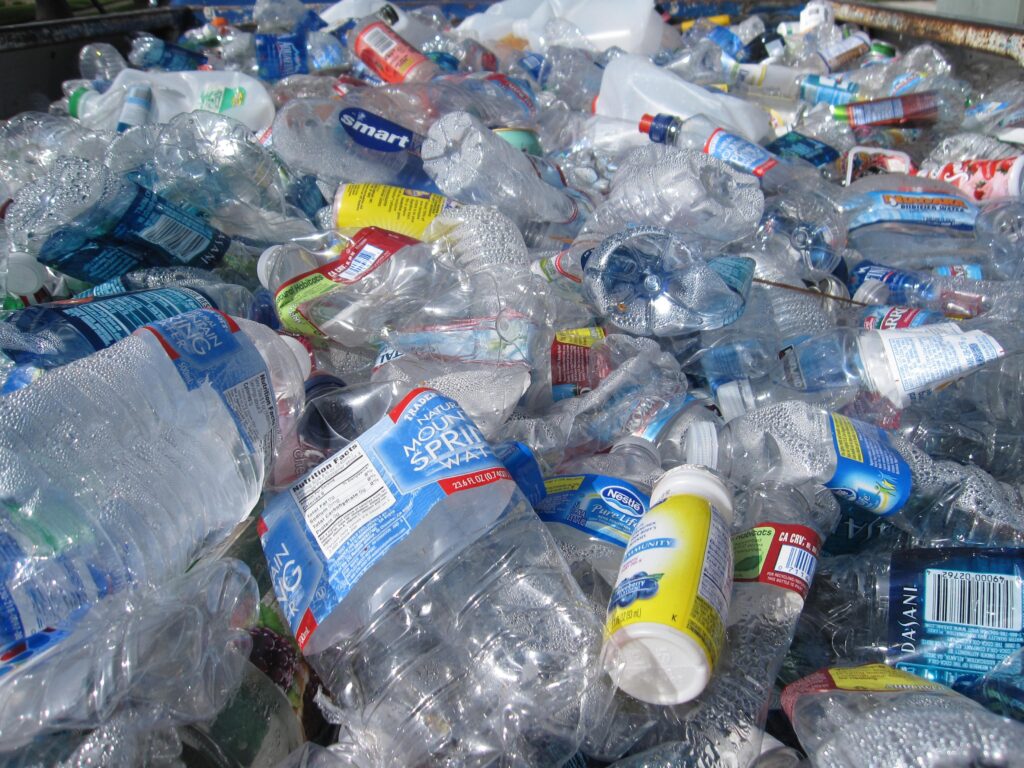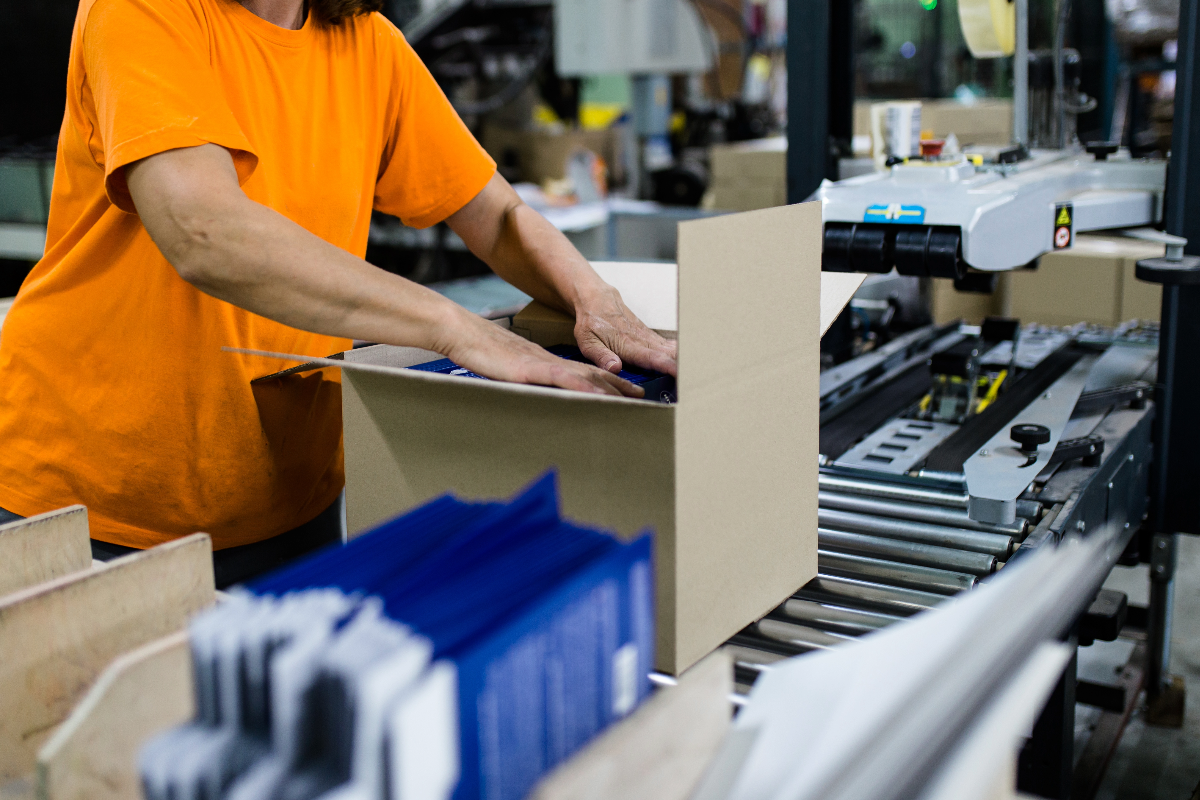BLOG
With the results from DEFRA’s Extended Producer Responsibility consultation being published this week, we look at the results and what it all means.

Extended Producer Responsibility (EPR)
This week, DEFRA published the results from the consultation on Extended Producer Responsibility – placing the responsibility for disposal costs of packaging onto the producers of that packaging.
There are many complex areas to the consultation result – we’ve summarised the key points below.
What is it?
The extended producer Responsibility (EPR) will adopt a “polluter pays” stance to cover the full cost of disposing packaging waste. The EPR will make producers responsible for the costs of their packaging throughout it’s life cycle – including disposal.
A producer responsibility system has existed since 1997 but this does not cover the full cost of disposing of packaging waste. The changes being made will make sure that the cost of packaging disposal and recycling will be covered by the producers of the packaging.
What are the key points?
The EPR will also move the cost of dealing with household packaging waste away from the taxpayer, with the producers of the packaging due to cover these costs.
The aim is to encourage producers to reduce their use of packaging; drive down unnecessary waste; encourage more recycling; and increase use of sustainable packaging.
Labelling of recyclable packaging will improve, with the aim of making recycling easier for households. This will include clear labelling with a single labelling format.
The payments made by producers will help to support improved recycling collections for households, enable the collection of additional materials (such as plastic film and flexible packaging, not currently collected). It will also enable recycling collections to be more consistent across the country.
What are the recycling targets?
The targets for recycling rates as a result of the EPR regulations are set out as follows:
| Item | Proposed targets for 2030 |
| Plastic | 62% |
| Wood | To be confirmed |
| Aluminium | 50% |
| Steel | 85% |
| Paper/Card | 89% |
| Glass | 83% |
| Glass re-melt | 80% |
| Overall recycling rate | 76% |
What are the key points?
The cost of managing packaging waste disposed of my households will be shifted to the producer, rather than falling on taxpayers and councils; with the intention that producers will consider using packaging which is easier to recycle or reduce the amount of packaging used.
Producers will be expected to clearly label packaging to make it easier for consumers to recycle packaging and divert more from landfill. This will apply to all packaging except for films and flexible plastics. By March 2026 all packaging should be labelled as “recycle” or “do not recycle”. This will extend to plastic films and flexibles by march 2027.
It’s expected that payments made by producers to manage waste packaging from households will also enable local councils to extend the amount of recycling they can offer, for example the inclusion of plastic films, and for recycling collections to become consistent throughout the country in terms of what items can be collected for recycling by the council.
Coupled with household waste disposal, payments from producers will also contribute to better labelled street bins, and an extension of what can be put into a recycling street bin to support the public in disposing of waste correctly and prevent littering.
What else?
Other changes include introducing a mandatory takeback scheme for the collection and recycling of disposable coffee cups.
All compostable and biodegradable packaging will be required to be labelled with “do not recycle”, until there is evidence that shows it can be collected and composted separately.
Who exactly is classes as a producer?
Several types of business types of business have been classed as “producers” and will be obligated for the EPR payments.
These include Brand Owners – those that put goods into packaging; or have goods put into packaging; and place them on the UK market; and Importers – businesses that are responsible for the import of filled packaging into the UK for sale (or the first owner of the packaging in the UK, if the importer is not based in the UK).
It also includes Distributors – those businesses that distribute unfilled packaging; Online Marketplaces – those who offer filled packaging for sale in the UK; Sellers – those who sell any filled packaging to the end user; and Service Providers – those who supply reusable packaging to a user of that packaging where it is supplied by hiring or lending out.
Some of the businesses’ obligations differ between England, Northern Ireland, Scotland and Wales – see the full guidance below for details.
Will this affect all packaging producers?
There will be a threshold over which businesses will be expected to pay – over £2 million turnover and 50 tonnes of packaging placed on the market.
Those businesses who have a turnover of over £1m and place 25 tonnes of packaging will be required to monitor and report the amount and type of packaging that they place on the market but will not have to make payments until at least 2026.
How much will it cost for producers?
The fees that producers will have to pay have not yet been set. This is something which the scheme administrator will establish.
The fees paid by producers are expected to reflect the disposal costs of different packaging materials.
It is expected that producers will pay more for non-recyclable packaging, with the aim that this will encourage use of more sustainable and recyclable materials to make packaging.
How much will it raise?
It is expected that payment of around £1.7billion per year will be made in obligated producer costs. This will go towards the management of household packaging waste – an estimated £1.2billion which currently is met by taxpayers.
What about business waste and Packaging Recycling Notes?
The current PRN system will stay in place at the moment. Some moderations to the system may take place; a consultation on proposed changes has been launched.
Payments from producers to fund the collection of commercial waste will not be introduced for now. In other words, commercial collections costs will continue to be paid by the companies that fill the waste bins as is current practice. The government will keep this under review.
How will it be managed?
A scheme administrator will be appointed in 2023 to manage the scheme. Any payments made by producers will be paid to the scheme administrator to distribute.
When will changes be made?
EPR will be implemented in full, from 2025; with payments to Local Authorities starting in April 2024. Packaging will need to be labelled by March 2026 (plastic films and flexibles from March 2027).
How can I find out more?
You can read the full consultation findings here.




